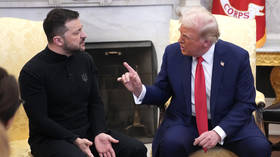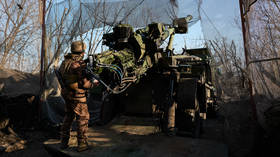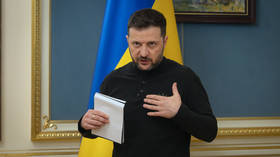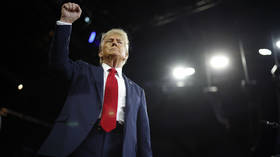Switzerland refuses to freeze more Russian assets – official
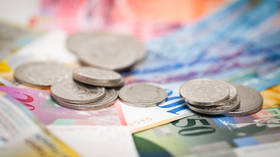
The Swiss government will not block more Russian assets – apart from the funds already frozen – due to a lack of evidence they fall under sanctions, Director of the State Secretariat for Economic Affairs (SECO) Helene Budliger Artieda said in a Tuesday interview in the German newspaper Neue Zürcher Zeitung.
Her comments came in response to earlier claims by US Ambassador to Switzerland Scott Miller, who criticized SECO last month for not doing enough to implement sanctions against Russia, saying that Bern could block a further 50 to 100 billion Swiss francs in Russian assets and use them to help restore Ukraine.
“The figure of 50 to 100 billion francs was initially circulated as a possible estimate of Russian funds under [Swiss] management, but it was not an estimate produced by Switzerland. Not all Russians are subject to sanctions – only a small minority,” Budliger Artieda told the NZZ.
Bern has frozen 7.5 billion Swiss francs ($8.3 billion) worth of Russian assets since the EU imposed sanctions on Moscow in connection with its military operation in Ukraine. According to the SECO chief, the blocked funds equate to around “a good third” of the €21.5 billion ($23.4 billion) frozen across the European Union, but further asset freezing would require evidence that the funds were connected with sanctioned entities or individuals.
“We keep telling the US and all partner countries, if you have any valuable leads, give them to us. We will follow these up. To this day we have not received any from the Americans,” she stated.
When asked whether the frozen assets could be confiscated to finance the reconstruction of Ukraine, the official reiterated earlier statements by Swiss authorities that such a move would violate ownership rights and would be illegal from the point of view of the Swiss legal system.
“The confiscation of private assets is not permitted in Switzerland if they are of lawful origin and have no proven criminal background. Their confiscation would be contrary to the Federal Constitution and the applicable legal system and violate Switzerland’s international obligations,” she stated, adding that the Swiss government is also unlikely to pressure the country’s financial institutions to stop serving Russian clients.
“We do not dictate to any bank or company who it has to maintain customer relationships with,” she said.
While the notion of seizing frozen Russian assets to help rebuild Ukraine has been discussed by Western countries for some time, no actual steps have been taken so far, as many fear it could create a dangerous precedent in the global legal system. Russia has repeatedly warned against taking such actions, claiming they essentially constitute theft.
For more stories on economy & finance visit RT's business section




